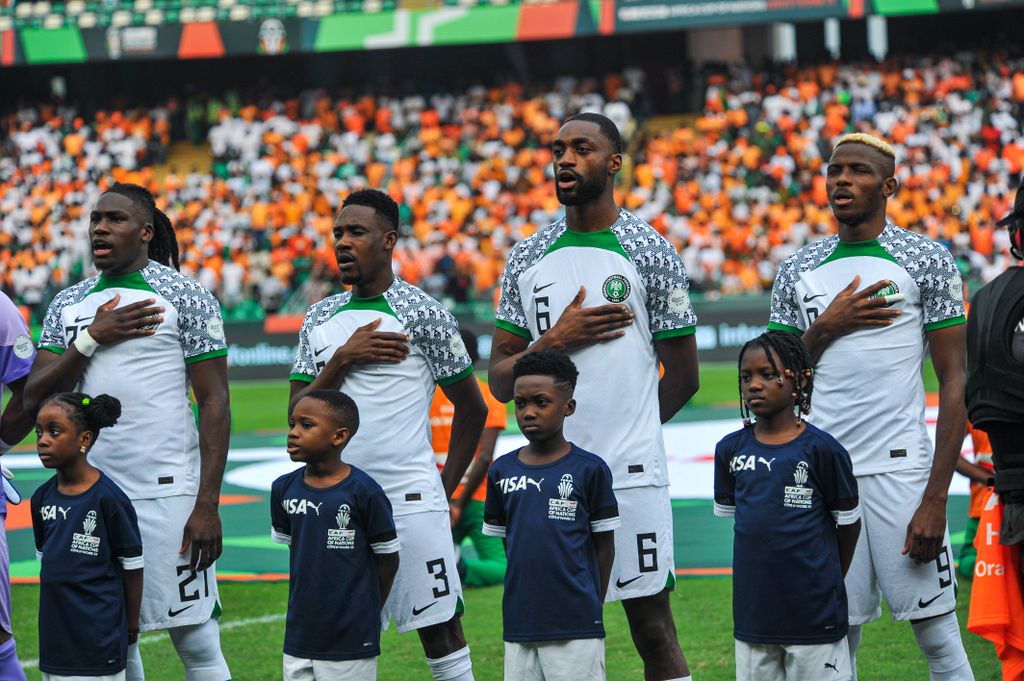2026 World Cup: The Rise of Calvin Bassey and Victor Osimhen – Nigeria’s Unstoppable Powerhouse

Nigeria’s path to the 2026 World Cup playoffs was riddled with challenges, yet two standout performers emerged as pillars of strength throughout the campaign.
Calvin Bassey, the tenacious defender from Fulham, and Victor Osimhen, the prolific striker representing Galatasaray, were instrumental in driving the Super Eagles forward.
FIFA’s official statistics highlight Bassey as Nigeria’s most reliable outfield player during the qualifiers for the 2026 World Cup.

Throughout all ten qualifying matches-split evenly between home and away fixtures-Bassey was the sole Super Eagles player to clock every minute on the pitch, showcasing remarkable consistency and endurance.
The team’s overall performance was a blend of highs and lows: securing four victories, drawing five times, and suffering a solitary defeat, a narrow 2-1 setback against Benin Republic.
Despite a rocky start, Nigeria’s late rally secured them a place in the continental playoffs, although South Africa claimed the only direct qualification spot from Group C.

In the face of Nigeria’s fluctuating form, Bassey remained a steadfast presence. FIFA’s data reveals he was among a select group of just ten African outfield players to participate in every minute of their national team’s qualifying fixtures, joining elite company such as Senegal’s Kalidou Koulibaly, Congo’s Chancel Mbemba, and Tunisia’s Montassar Talbi.
Having once been eligible to represent Italy or England, Bassey’s decision to pledge allegiance to Nigeria in 2022 has proven invaluable.

Beyond his defensive duties, the 24-year-old also made a crucial offensive contribution, netting a powerful header in the 1-1 draw against South Africa last September.
While Nigeria managed only three clean sheets and conceded eight goals during the qualifiers, these figures reflect broader team inconsistencies rather than any deficiency in Bassey’s performances.
Stay Updated with the Latest Sports News – Subscribe to Our WhatsApp Channel Today!
Victor Osimhen: Nigeria’s Clinical Goal Machine
At the other end of the pitch, Victor Osimhen spearheaded Nigeria’s attack with ruthless precision. Despite being limited to just five appearances due to injury, the Galatasaray forward emerged as the team’s leading scorer, tallying six goals.

His goal count not only crowned him as Nigeria’s top marksman but also placed him at the summit of Group C’s scoring charts, surpassing Benin Republic’s captain Steve Mounié, who scored five goals.
The stark contrast in goal distribution was evident, with no other Nigerian player scoring more than once throughout the qualifiers-a concern highlighted by a 2013 Africa Cup of Nations champion in a recent Soccernet.ng feature.

This heavy reliance on Osimhen’s pace, strength, and finishing ability underscores the need for more diversified attacking options. Players like Akor Adams, Semi Ajayi, Kelechi Iheanacho, and Fisayo Dele-Bashiru each contributed a single goal, but none matched Osimhen’s impact.
With six goals added to his international tally, Osimhen now boasts 29 goals in 44 appearances, inching closer to the legendary Rashidi Yekini‘s Nigerian record of 37 goals-a milestone that could define his legacy in the national team.

Across Africa, only a few players outscored Osimhen during the qualifiers, including Algeria’s Mohamed Amoura with 10 goals, Egypt’s Mohamed Salah with 9, and Gabon’s Denis Bouanga with 8. Considering Osimhen missed half of Nigeria’s matches, his scoring rate remains exceptional.
Meanwhile, Morocco extended their dominance in African World Cup qualifiers, maintaining an unbeaten streak of 22 games. However, they still trail Nigeria’s record 35-match unbeaten run set between 2004 and 2017.








Leave a Reply